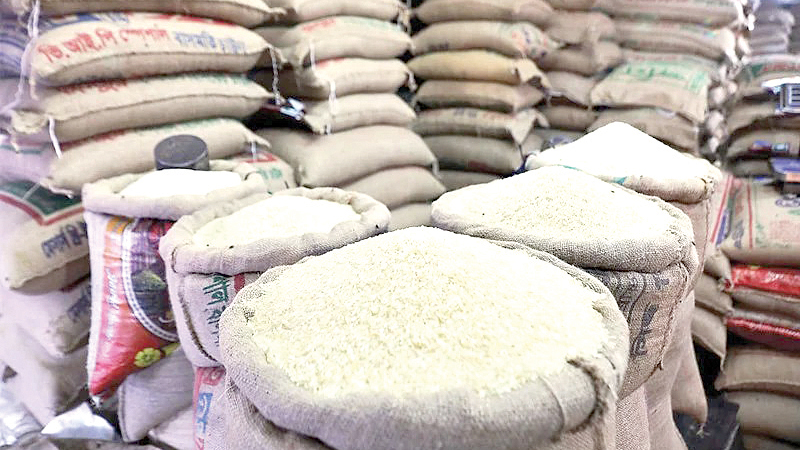Tariffs on imported rice may be increased amid the currently low palay buying prices, Department of Agriculture Secretary Francisco Tiu Laurel Jr. said yesterday.
Speaking to reporters at the sidelines of a House of Representatives session yesterday, the DA chief also revealed that there are discussions at the cabinet level of possibly extending the ongoing rice import ban until the end of the year, if necessary.
On September 1, the government implemented a 60-day rice import ban, which was initially scheduled to end by the end of October.
Meanwhile, last year, the government reduced rice tariffs to 15 percent with the issuance of Executive Order (EO) 62, citing the need to lower the retail cost of rice in the country. It is still implementing the same tariff rate to date.
However, local agri stakeholders have not wavered in their demands for the government to revert rice tariff levels to 35 percent for sources within ASEAN and 50 percent for sources outside of ASEAN, citing its effects on local palay prices.
At what level?
“At present, we are coordinating with [Finance] Secretary Ralph [Recto] and [Investment and Economic Affairs ] Secretary [Frederick] Go, of course, with the President’s directive to review what will be the tariff rates,” Tiu Laurel said. “They’re running the numbers now from 20 percent, 25 percent or 35 percent. Hopefully, we can decide on the closure of the [rice import] ban,” he said.
The DA said that during a meeting with President Marcos Jr. last Friday, it was decided that the rice import band will be extended for a minimum of 30 days or until the end of November 2025. Still, Tiu Laurel said that such a ban may even be extended, possibly until the end of the year, “depending on the situation.”
He claimed that such a plan is also currently supported by rice millers and local rice traders.
“Before we announced a ban, it was P8 to P10 per kg in some areas. Since we implemented this ban, the price has increased to P14 per kg. In Zamboanga, the price even rose as high as P17 per kilogram. But right now, during the peak of harvest season amid rains, farmers cannot have their grains dried properly which is bringing down the cost of palay,” Tiu Laural explained.
DA said that based on field reports, there are cases wherein palay prices have reached to as low as P6 to P8 per kg, which he described as “quite alarming.”
Based on the latest data from the Philippine Statistics Authority, the production cost of palay in the country as of the end of 2023 is at P13.38 per kg.
Tiu Laurel added that the President is also scheduled to issue an EO for emergency government procurement of palay to stabilize prices triggered by adverse weather and a bumper harvest, which was deemed the cause for the ineffectiveness of the rice import ban.
Drastic plunge
Local farm groups, including the Federation of Free Farmers (FFF) and the Magsasaka Party List (PL), filed an urgent petition asking the DA to immediately impose provisional safeguard duties on rice imports to address the drastic plunge in palay prices.
The groups noted that under the Safeguard Measures Act, the DA Secretary can impose safeguard duties or taxes on top of regular tariffs if there is a surge in rice imports that has caused, or threatens to cause, serious harm to local farmers.
“Increasing the tariff is the most effective way to convince traders that they can pay higher prices to farmers and still be competitive with imports during the off-season,” Raul Montemayor, FFF national manager, said.
“And the best and fastest way to raise the tariffs at this time is through the Safeguard Measures Act. Waiting for Congress or an Executive Order will take too long,” he pointed out.
The groups added that if a safeguard duty is imposed, importers will be required to post a bond equivalent to the safeguard duty in addition to paying the current 15 percent rice tariff.
They also stated that a safeguard duty can last up to 200 days, while the Tariff Commission conducts a formal investigation and issues its final ruling on the case.
Cheap imports backfire
Meanwhile, Argel Joseph Cabatbat, Magsasaka PL chairman, warned that the proposed floor price for palay will not work if market prices remain low due to cheap imports.
He expressed that the scheme could even backfire on farmers, should traders decide to stop buying palay to avoid penalties for not complying with the mandated minimum price.
“The low prices that rice producers have been receiving for their labors represent not just an economic problem. They threaten the very survival of rice farmers and the long-term security of our entire agricultural sector,” Cabatbat said.




